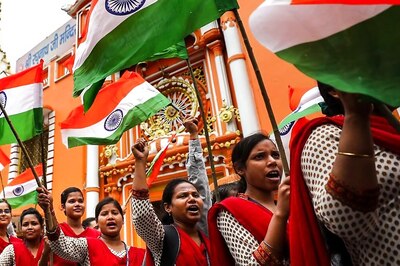
views
Aiming to retain the confidence of global health regulators on made-in-India medicines, the Centre is working on tightening the good manufacturing practices followed at Indian pharmaceutical firms, News18.com has learnt.
Driven by the suggestion given by the Ministry of Commerce and Industry, the Ministry of Health and Family Welfare is working to upgrade “Schedule M” of the Drugs and Cosmetics Act, 1940.
The idea is to make manufacturing standards on par with WHO-Good Manufacturing Practices (GMP) standards. The Ministry of Health and Family Welfare is working on the revision of the schedule along with the Department of Pharmaceuticals (DoP) — an arm under the Ministry of Chemicals and Fertilizers.
The move holds relevance as India has been facing several allegations levelled by global regulators, including the contamination complaints by The Gambia, Uzbekistan, United States, Marshall Islands and Micronesia. Some of these allegations were highlighted by the World Health Organisation’s drug alert raising questions over the quality of Indian drug products.
“The commerce ministry and its pharma export arm Pharmexcil have suggested the health ministry to tighten the good manufacturing practices across India and implement schedule M,” an official from the Ministry of Commerce and Industry, privy to the development, told News18.com.
“The Department of Commerce has told the health ministry to take a significant step as it is crucial to send a strong message to global health regulators that India is working on fixing the issues,” the official said, adding: “It’s high time when India needs to work on retaining the trust of regulators and actions would speak better than mere words…”
Another official from the Ministry of Health confirmed that the government is working on fixing Schedule M once again.
What is Schedule M?
Schedule M of the present law deals with good manufacturing practices for premises, materials and requirements for plants and equipment. It also contains details about quality control systems, quality control laboratories, cleaning of equipment, housekeeping, and cross-contamination among other issues.
In 2018, Schedule M was revised in sync with the Centre’s plan to implement uniform standards for the drug manufacturing industry ahead of joining the Pharmaceutical Inspection Cooperation Scheme (PICS), a global mechanism to improve cooperation in GMPs between regulators. PICS compliance helps in promoting drug exports as it offers greater market access and also makes it easier for global regulators to trust the quality of medicinal products.
However, later, the upgraded draft of the prepared schedule was not implemented.
“While the Act was upgraded in 2018, it was not implemented. Once adopted, the scope of the regulatory requirements on GMP will become twice what they are today,” said the official quoted above.
Once adopted, the government will make following WHO-GMP mandatory for all pharma firms, including those who produce drugs for domestic use as well as for exports. Currently, only exporting companies follow WHO-GMP standards.
Series of complaints denting India’s reputation
On April 25, the WHO issued a Medical Product Alert on a batch of substandard (contaminated) Guaifenesin TG syrup found in the Marshall Islands and Micronesia. The cough syrup is manufactured by Punjab’s QP Pharmachem and marketed by Haryana-based Trillium Pharma and has proven to contain toxic chemicals.
In February, Delhi-based Global Pharma Healthcare recalled all lots of their artificial tears lubricant eye drops in the United States after 55 reports of adverse events, including eye infections, permanent loss of vision, and a death with a bloodstream infection.
In January, Uzbekistan authorities complained about a made-in-India cough syrup which led to deaths among children whereas in October, WHO issued an alert over another cough syrup exported and manufactured by India which led to the death of several children in The Gambia.
While in the case of Gambia, India has denied allegations of contamination, in other cases either the investigations are going on or the company has proven guilty and has suspended manufacturing.
Read all the Latest India News and Karnataka Elections 2023 updates here



















Comments
0 comment